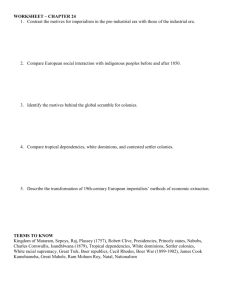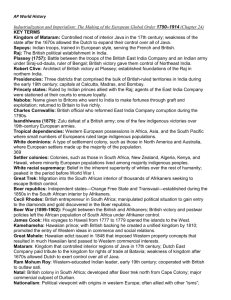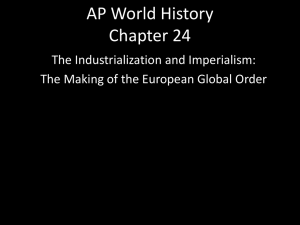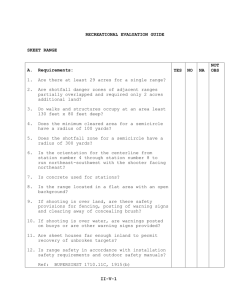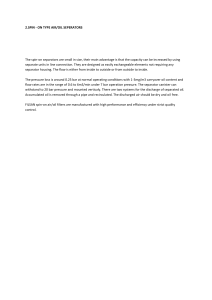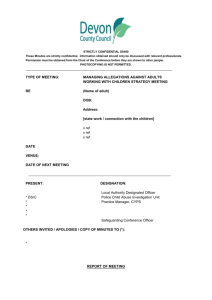Chapter 24: Terms & Essay Questions
advertisement
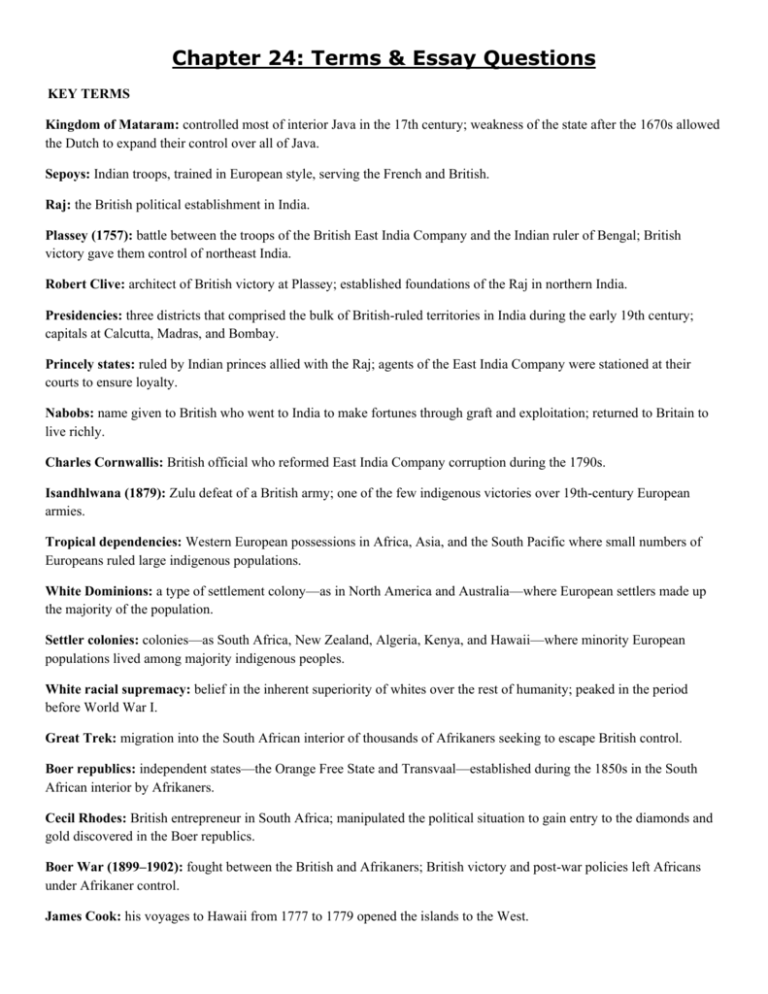
Chapter 24: Terms & Essay Questions KEY TERMS Kingdom of Mataram: controlled most of interior Java in the 17th century; weakness of the state after the 1670s allowed the Dutch to expand their control over all of Java. Sepoys: Indian troops, trained in European style, serving the French and British. Raj: the British political establishment in India. Plassey (1757): battle between the troops of the British East India Company and the Indian ruler of Bengal; British victory gave them control of northeast India. Robert Clive: architect of British victory at Plassey; established foundations of the Raj in northern India. Presidencies: three districts that comprised the bulk of British-ruled territories in India during the early 19th century; capitals at Calcutta, Madras, and Bombay. Princely states: ruled by Indian princes allied with the Raj; agents of the East India Company were stationed at their courts to ensure loyalty. Nabobs: name given to British who went to India to make fortunes through graft and exploitation; returned to Britain to live richly. Charles Cornwallis: British official who reformed East India Company corruption during the 1790s. Isandhlwana (1879): Zulu defeat of a British army; one of the few indigenous victories over 19th-century European armies. Tropical dependencies: Western European possessions in Africa, Asia, and the South Pacific where small numbers of Europeans ruled large indigenous populations. White Dominions: a type of settlement colony—as in North America and Australia—where European settlers made up the majority of the population. Settler colonies: colonies—as South Africa, New Zealand, Algeria, Kenya, and Hawaii—where minority European populations lived among majority indigenous peoples. White racial supremacy: belief in the inherent superiority of whites over the rest of humanity; peaked in the period before World War I. Great Trek: migration into the South African interior of thousands of Afrikaners seeking to escape British control. Boer republics: independent states—the Orange Free State and Transvaal—established during the 1850s in the South African interior by Afrikaners. Cecil Rhodes: British entrepreneur in South Africa; manipulated the political situation to gain entry to the diamonds and gold discovered in the Boer republics. Boer War (1899–1902): fought between the British and Afrikaners; British victory and post-war policies left Africans under Afrikaner control. James Cook: his voyages to Hawaii from 1777 to 1779 opened the islands to the West. Kamehameha: Hawaiian prince; with British backing he created a unified kingdom by 1810; promoted the entry of Western ideas in commerce and social relations. Essay Questions 1) In what ways was the British conquest of India similar to the Dutch colonization of Java? In what ways was it different? Page Ref: 554-557 Topic: The Shift to Land Empires in Asia 2) One of the first elements of European reform within the colonies was the introduction of educational systems. In what sense did the introduction of Western education plant the seeds of decolonization? Page Ref: 558, 559 Topic: Western Education and the Rise of an African and Asian Middle Class 3) In what ways did the process of industrialization and national centralization typical of 19th-century Europe alter the process of imperialism? Page Ref: 560—62 Topic: Industrial Rivalries and the Partition of the World, 1870—1914 4) In what ways did the colonizers of the late 19th century control the indigenous peoples and increase economic exploitation? Page Ref: 563-566 Topic: Patterns of Dominance: Continuity and Change 5) In what ways did the colonial experience of "contested settler colonies" differ from that of "tropical dependencies"? Page Ref: 565-571 Topic: Patterns of Dominance: Continuity and Change
